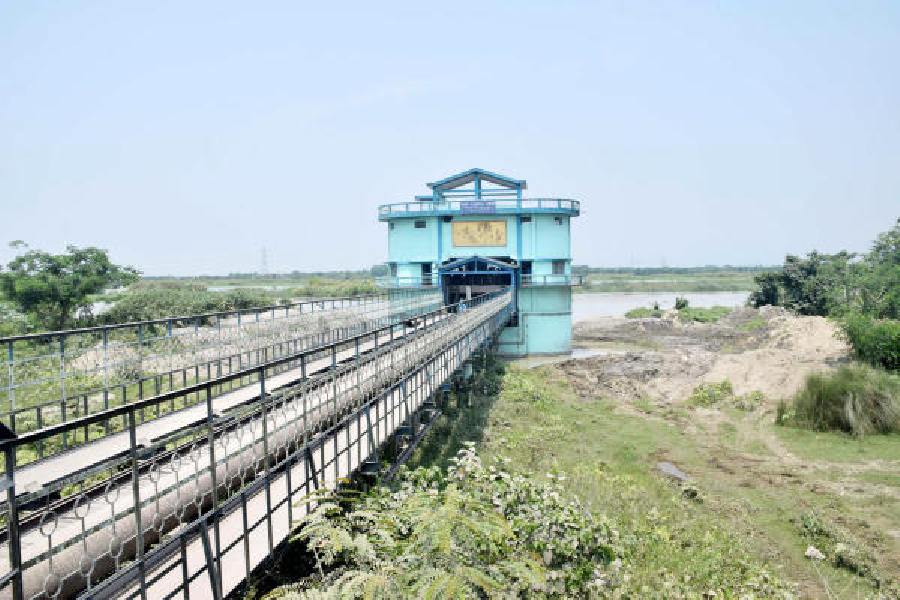The surge in the water level of the Teesta river in its catchment areas, especially upstream, after the monsoonal downpour, has ironically affected drinking water supply in the Siliguri Municipal Corporation (SMC) area since Wednesday.
The reason: with the rising water levels, the river has brought down huge mounds of debris that have led to silt deposits in its canals, including the canal from where water is drawn into the treatment plant in Fulbari on the city's southern outskirts.
“The chief engineer (northern circle) of the state PHE department has informed me that because of the flood-like situation in the Teesta, there have been huge silt deposits in the canal. Also, the intake wall through which water is drawn into the plant from the canal is almost choked with silt. This is why drinking water supply is affected in the city,” said mayor Gautam Deb.
On Friday evening, Deb held an emergency meeting with officials of the PHE department to resolve the issue.
Sources said that to get adequate water for the treatment plant through the intake well, around 2,800 cubic metres of water per hour is needed to maintain the water level in the canal.
“Because of debris, it is now 2,000 cubic metres per hour. The state irrigation department maintains the water level but the reduced water level and intake well siltation have created problems. The machines to clear silt from the intake well also require maintenance,” said a source.
The civic body, Deb said, had feared such an emergency, which is why they gave ₹75 lakh to PHE to repair the machines.
“Without an alternative storage pond, we face a water supply crisis during emergencies. But we have made alternative arrangements by installing hand pumps, wells and by distributing water through 20-odd tankers,” the Siliguri mayor said.










